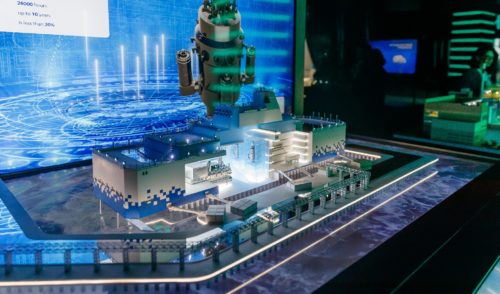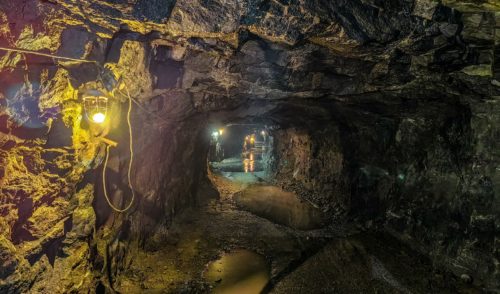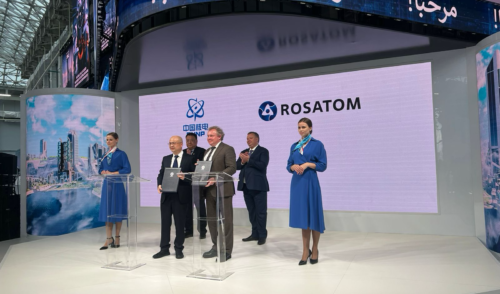
Russia and Saudi Arabia to Cooperate in Nuclear
back to contentsThe King Abdullah City for Atomic and Renewable Energy (KACARE) and Russian nuclear corporation Rosatom signed a road map for peaceful uses of nuclear power. The document was signed by Dr. Maher Bin Abdullah Al-Odan, Chief Executive of the KACARE Atomic Energy Sector, and Evgeny Pakermanov, President of Rusatom Overseas (a Rosatom Group company promoting Russian nuclear technology on foreign markets).
The road map provides for a series of measures that will enable implementation of the Russian-Saudi Program for Cooperation on Peaceful Uses of Nuclear Energy. The Program was signed on 5 October 2017 in Moscow during the history-making visit of King Salman bin Abdulaziz bin Abdulrahman Al Saud to Russia.
Saudi Arabia and Russia plan to jointly work on low and medium power reactors that can be used for electricity generation and water desalination. Other plans are to establish joint education courses for employees who will develop the Saudi national nuclear program and nuclear infrastructure. Russia and Saudi Arabia will also analyze prospects of building a nuclear science and technology center based on a Russian-designed research reactor in the country.
In June 2015, Russia and Saudi Arabia signed a civil nuclear cooperation agreement in Saint Petersburg. This document was the first in the history of the Saudi-Russian relations to create a legal framework for the two countries to cooperate across all sectors of the civil nuclear industry.
According to Rosatom’s Annual Report 2016, construction of two nuclear reactors in Saudi Arabia is on the list of projects that can be started before 2030.
Earlier Saudi Arabia announced its plans, unprecedented for the region, to build 16 nuclear power reactors to satisfy its power demand. In September, Rosatom’s CEO Alexei Likhachev told reporters on the margins of the IAEA General Conference in Vienna that the Russian nuclear corporation and its Saudi partners were negotiating a ‘broad range of projects, from a large-capacity nuclear power plant with desalination facilities to low and medium capacity power sources, including floating nuclear plants’.




